She was raised on a farm in Östergötland and eventually made her way onto the stages of the fashion industry, an environment she ultimately decided to leave to pave her own way. More than a decade later, textile designer Anna Bilén is running her own brand Shyness, a small, circular business that respects nature’s natural rhythm.
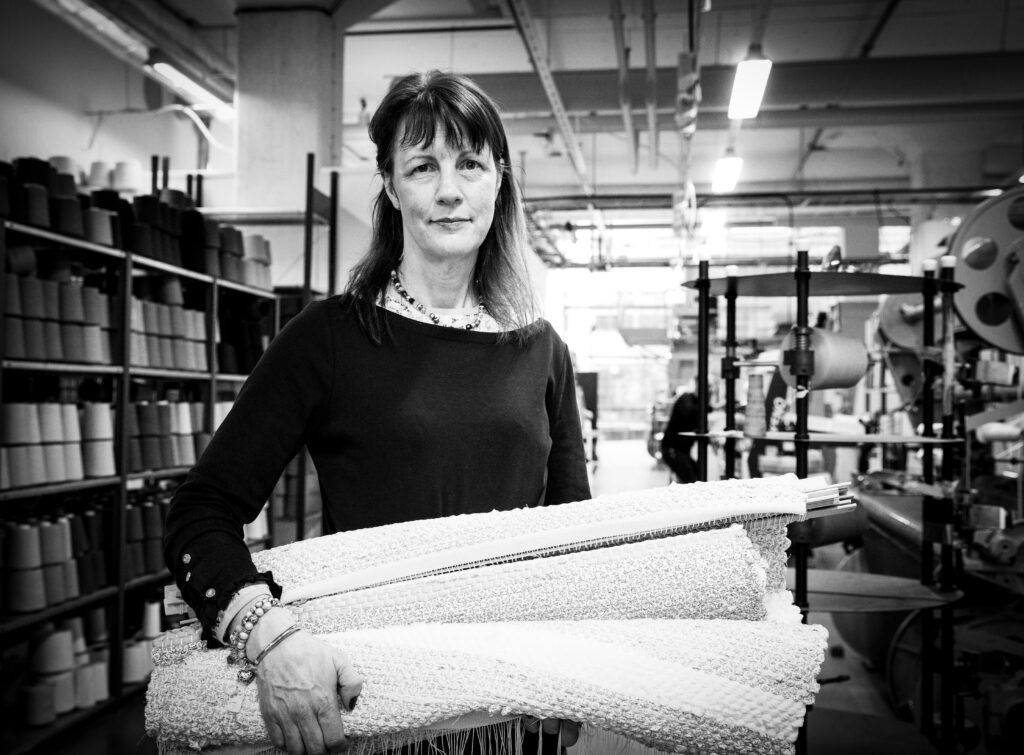
Anna Bilén prefers to veil herself under the cover of her own brand. As someone raised in the modest environments of a farm in the eastern parts of Sweden, where the notion of preservation overrides everything, she never intended to step away from it all.
– We ran a farm that demanded attention from every single family member, recounts Anna Bilén, who during her teenage years had to look after the family’s horses.
– The way I work today is shaped by how and where I was raised – it’s all about understanding and complying with nature’s pulse.
During her years as a textile engineer student at the Swedish School of Textiles in the 1990’s the fragility of our environment started to manifest itself in the lecture rooms. It was during the aftermath of the TEKO crisis, and longevity and sustainability were about to become key aspects of both her own life and in the fashion industry at large.
– Environmental challenges, and all its variations, became part of our day-to-day vocabulary at the university. We were trained to see the “big picture”; the focus shifted from mere profit maximization to sustainability. Perhaps normal today, but definitely radical back then.
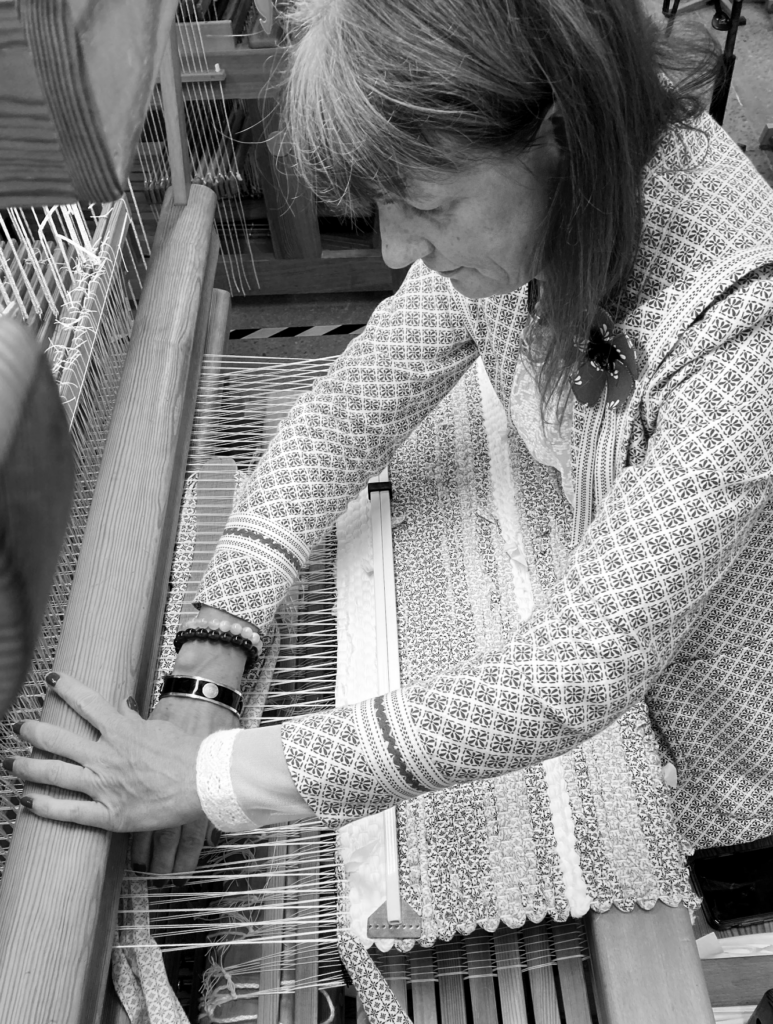
She emphasizes the significance of the connections made during her time studying in Borås.
– It has been 26 years since I graduated but I still keep in touch with many of my former classmates. The ideas I took with me from Borås has remained a mainstay in my work.
No wonder, perhaps, that Anna Bilén is where she is today. With her headquarters in a small boathouse on the shores of the island Käringön on the Swedish west coast, her business serves as a model of how circular companies can run and thrive in the textile industry. Shyness interior, founded in 2009, is a well established producer of high-quality bedclothes.
Craft is central to everything Shyness does. Their latest major project, “Rag Rugs”, was about reviving deteriorated bed clothes by using them in new hand-woven mats.
Shyness is all about authenticity and following one’s own path. Or as Anna Bilén expresses it:
– The company is an extension of myself; how am I supposed to dedicate my life to something that doesn’t lie close to my heart?
There’s only one way out
Despite today’s success, it took a while before Shyness was able to take off. After graduating, Anna had been working in the major fashion industry for 12 years, at several national and international brands.
Eventually, she started working as a product developer during a time when large portions of European textile production were moving to Asia.
– In the early days of my career Europe-based production was still relatively common, but the transition to Chinese factories happened fast.
During this period, she was able to visit numerous established and new factories, where she gained valuable insights into the backbones of a new textile industry.
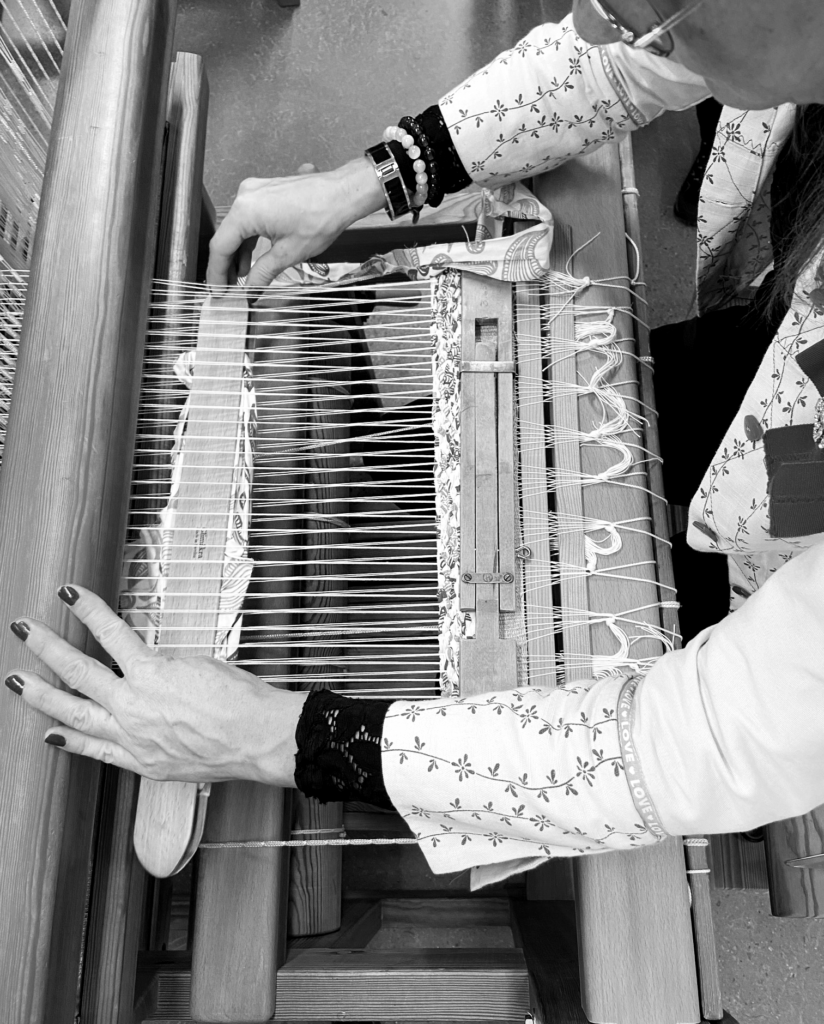
– They were exciting times: I was young, brimming with energy, and found myself continuously absorbing new experiences and information.
There were certain aspects, though, that rubbed her the wrong way.
– After being at all those places and seeing everything with my own eyes, I could not stop myself from asking: Should it really be like this? Is it possible to live and work in such cramped environments, to share the same toilet with so many people?
She is referring to the abysmal working conditions and health standards that make cheap clothes economically viable.
– The problem is not about a specific set of companies. Rather, there are structural and cultural faults that cross the entire industry. This was the norm back then and companies would justify their practices by saying: “If we don’t do it, someone else will”. Everyone were competing in a ruthless industry where every cent counted for survival.
“For me, the whole production chain need to to have sustainable conditions. If it’s not, I’ll be the first one out the door.”
– When South-China started becoming too expensive, we moved north and established brand-new factories. This is when I knew it was time to quit. At first, the intention was to take on existing working structures. But later, the decision was made to build new factories and expand on what already existed. I just didn’t see the point.
– I was critical and saw everything unravel, and I quickly realized that I would never be able let go of my affinity with circularity if I was to work in the textile industry. For me, the whole production chain need to to have sustainable conditions. If it’s not, I’ll be the first one out the door.
Anne Bilén highlights that the textile industry enjoys self-criticism, but simultaneously quickly cowers away when actual change needs to happen.
– The positions I’ve been in always allowed me to think freely and critically. The problem was that my ideas were never possible to turn into reality – it was impossible penetrate existing structures.
Shyness – an honest brand
Life’s tipping-point came when she was 33, with her first child underway. When her maternity leave period was over she never returned to her old job.
– Maybe it was exactly what I needed, says Anna Bilén, the space and time to reflect. I figured it would be fun to do something on my own, in my way. I wanted to move back the production to Europe and try to explain to the customers why the higher price for sustainable products is warranted. But also to pursue what I love. I entered the industry in the first place for one reason – the sheer love of textiles.
– With that said, it was the biggest challenge in my career thus far, to break free.
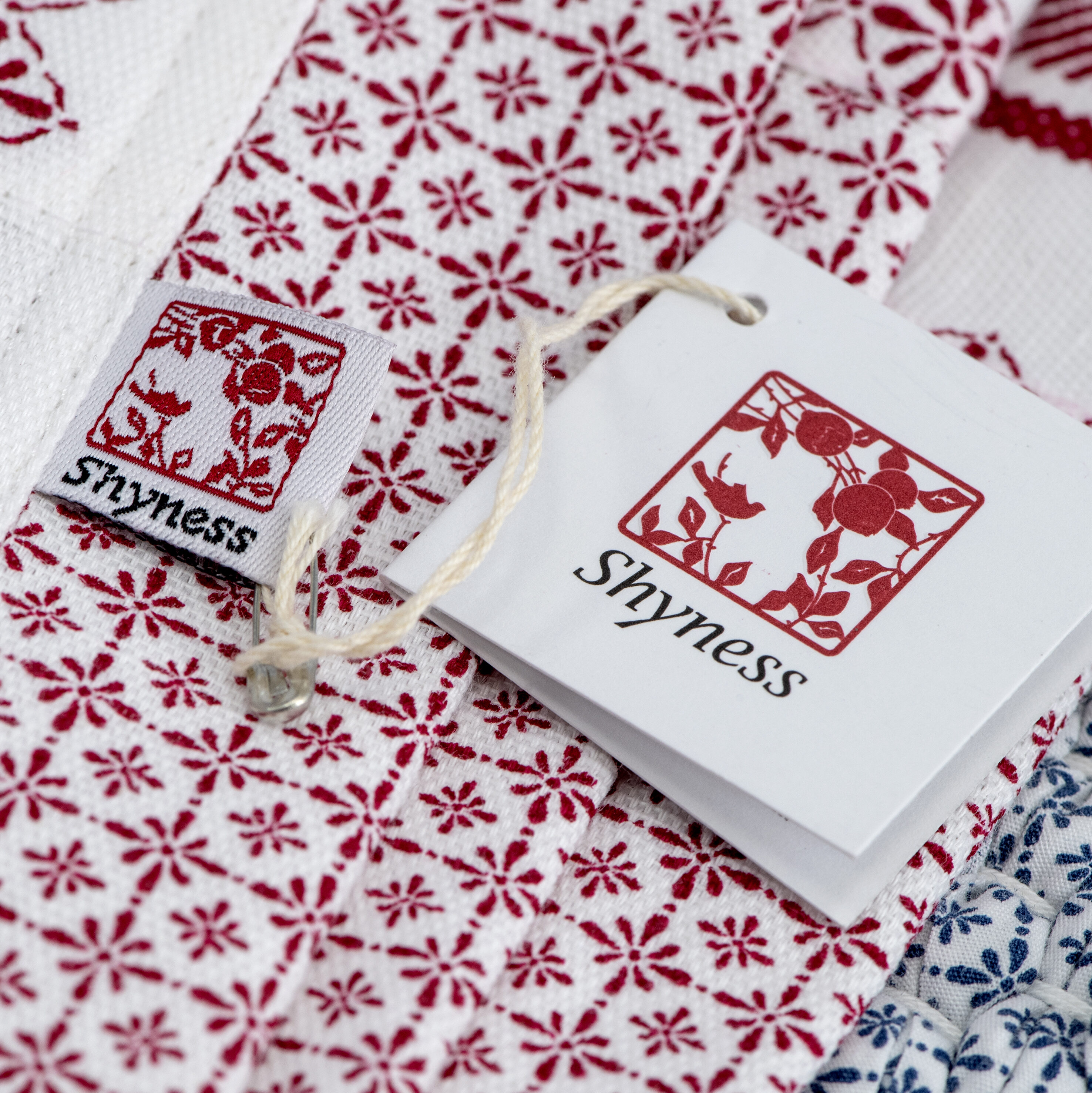
She started her own design company in 2009 with the purpose to produce her own textiles circularly and sustainably. The name “Shyness” emerged instinctively.
– I tried numerous suggestion that included words and phrases such as “Swedish Textile”, but it never felt right, says Anna Bilén.
Instead, contrasting most other entrepreneurs, she infused her own personal uncertainty and vulnerability into the brand.
– Honestly, I think the whole idea of running your own company is extremely distressing. It demands me to leave my own comfort zone and adjust my own private consumption to make up for the decreased income. So why should I pretend being at ease? I just happened to be in the right headspace the day I registered the company as “Shyness”.
She doesn’t regret it today.
– The name has been a way of reminding myself of who I am in the work that I do, says Anna Bilén. It’s fine to feel shy and anxious about the things you do. That’s the case for me, at least. I remember telling a friend when I just started out: “I’m shit-scared, but I am doing it anyway”.
What was the scariest part about it?
– Letting the market know: “Here I am and look at what I’m doing!”. It felt like coming home from woodworking class showing off today’s piece of work, says Anna Bilén with a laughter.
– During the earlier phases of a start-up, it feels like you have to do a lot of things simultaneously. Nowadays, I start my mornings asking myself what I ought not to do. It’s a way of liberating myself and to devote the necessary time to the things that actually makes me progress.
Rag Rugs – or how to make value of waste
In the beginning, Shyness didn’t sustain itself. Anna Bilén worked as a consultant for other textile companies in parallel to her own project. It wasn’t until 2017, eight years after starting the company, she was finally able to let go of her consulting work and commit fully to Shyness.
– When I started Shyness, it was important to resign my employment and dedicate everything to my company. I don’t believe in doing such things half-heartedly. I wanted to drive positive change and explore the possibilities of working sustainably and circularly on a larger scale.
– Doing something impactful demands a leap of faith. But one important aspect is that I never rushed through it. I allowed life to unravel itself. I got my little boy Vincent in 2011, and such things put a limit on what I can do.
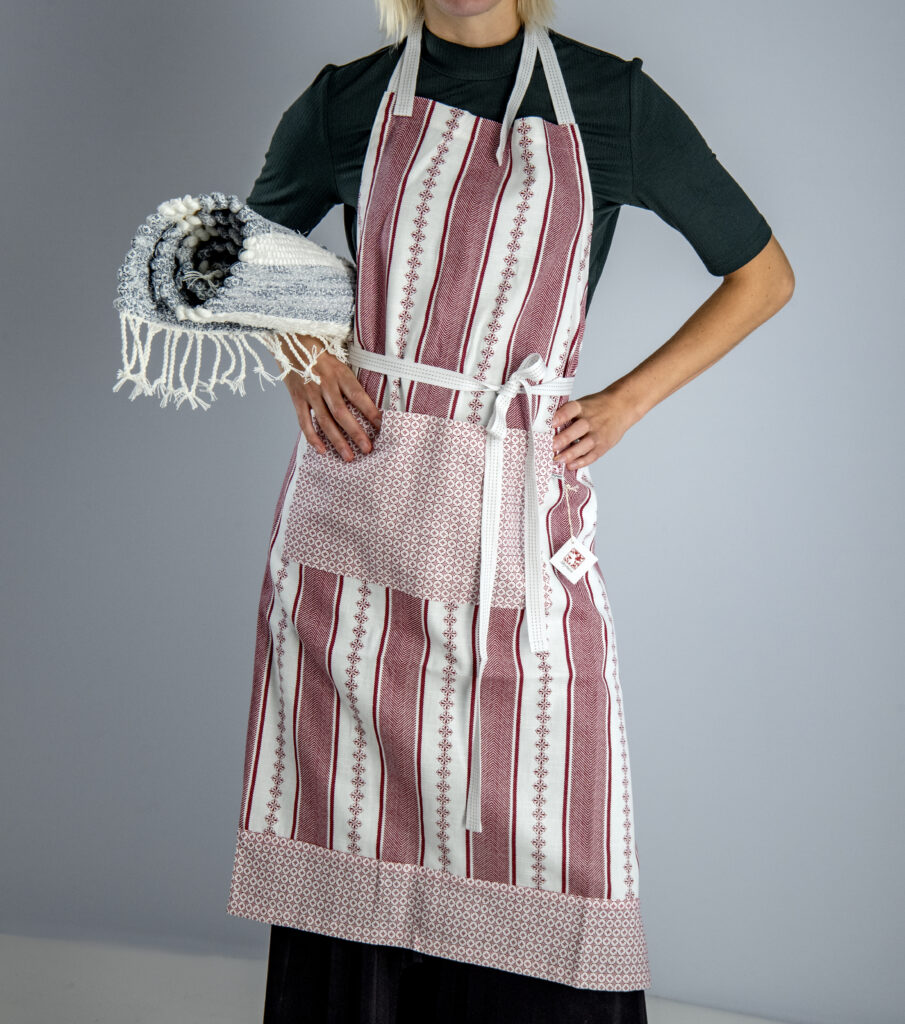
Today, there is a deeper level of understanding and acceptance in her surroundings for the way she chose to run her business.
– It’s important to show that it’s possible, to accept and go with what life brings. Working like this brings a sense of joy and dampens a large portion of the performance demands. It is wonderful to see how times have changed – to hear how everyone today is talking about the importance of work-life balance.
The project with recycled mats – “Rag Rug” – is a clear example of real circularity work in the textile industry. For Anna Bilén, it all started when she partook in Big Do 2021, a design hackathon organized by Textile & Fashion 2030.
– Throughout my professional life, turning to Borås always felt natural. It’s the definitive textile region of Sweden; it’s a locus of knowledge and competence and it’s assured to provide anyone curious with interesting courses and new ideas, says Anna Bilén.
The purpose of Big Do was to identify circular business models for already existing products.
– For me the question was clear: How can we put worn out bed clothes to optimal use, and to what extent is it viable in terms of business?
The material came from one of Shyness’ existing clients, “Anna’s Hotell” in Kristianstad, which acquired bed clothes for its lodgings back in 2015. Seven years and 2 200 washes later, they were deemed worn out and sent back to Anna Bilén.
– I have always made an effort to minimize waste in my organization, she says. If there are two meters of fabric left, I make a jacket. But what if I could step these efforts up a notch?
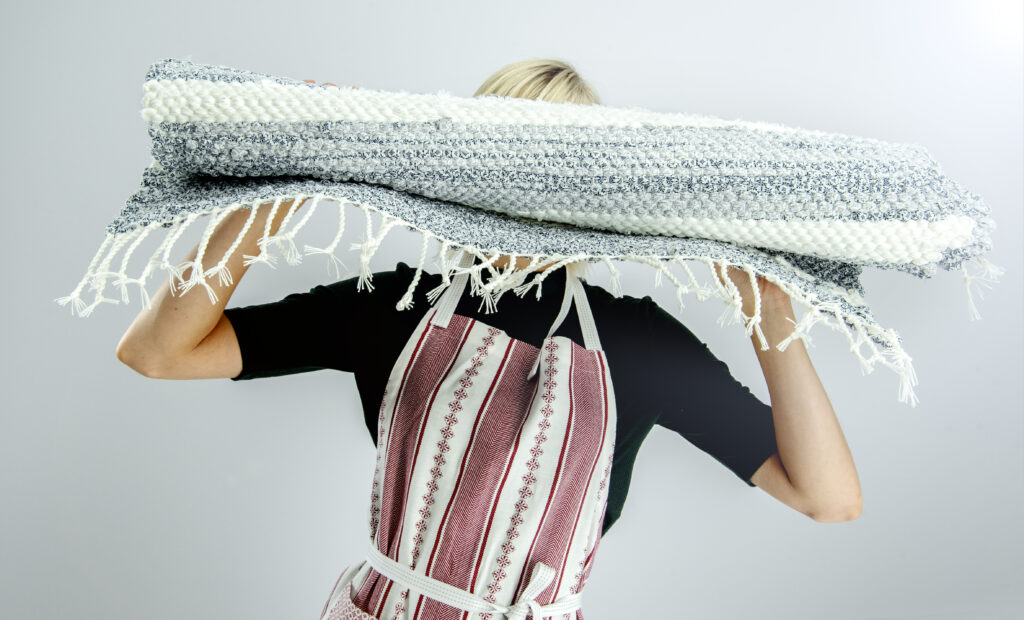
In collaboration with Science Park Borås’ in-house innovation engineer Mathias Bräck she developed a technique to effectively manage waste material by cutting pieces of fabric out of the old duvet covers. At the same time, she noticed an increased interest for hand-woven mats from her customers.
– I realized there was both a demand for and the possibility to create – from a purely technical perspective – hand-woven mats made from bed clothing, says Anna Bilén.
She started hand-weaving prototypes while sharing the whole process on social media. It instantly became a hit. Another existing client, the hotel “Älmare Stakets Herrgård” just outside of Kungsängen, wanted to buy the mats right away.
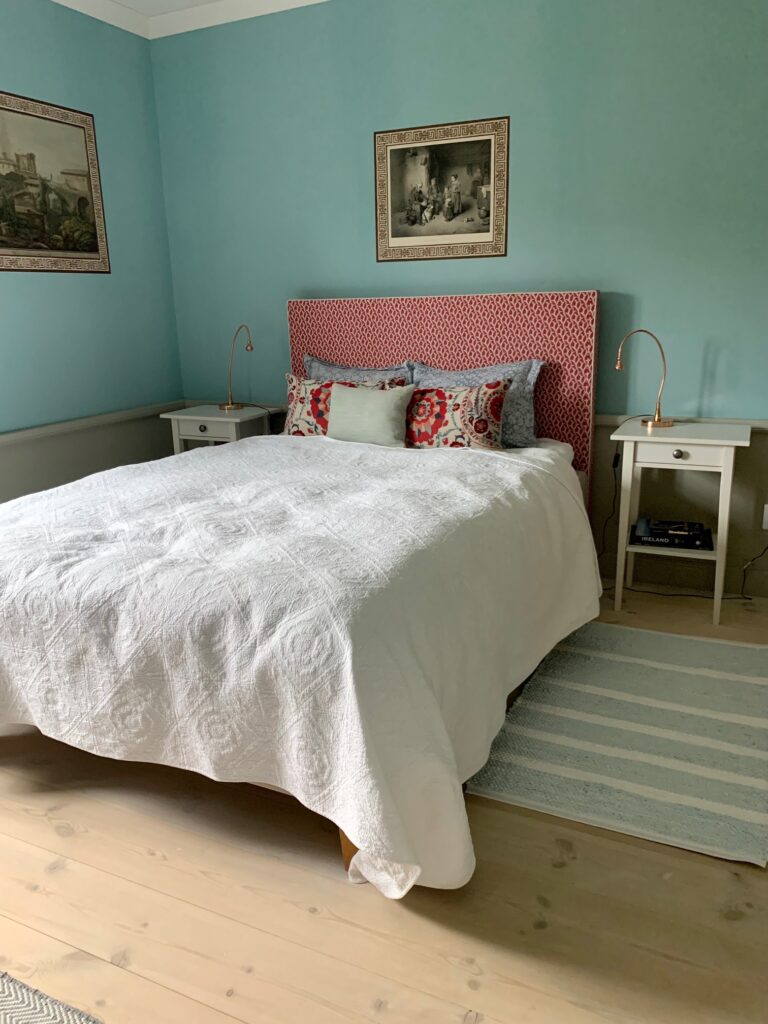
– They were stunned by how they turned out and offered 5 500 SEK per piece. It wasn’t until we started talking when the client realized that they were – in fact – made of old bed clothes. This, of course, made it all even better, says Anna Bilén.
She sees it as a testament to the importance of design in terms of value creation in recycled materials.
– As consumers, our desire to surround ourselves with pretty things will never go away. It was important to me that there existed an actual demand for mats and that I wasn’t making things just for the sake of it.
The power of true relationships in business
There was no haphazardness in Anna Biléns decision to sell mats to existing clients. During the entire lifetime of Shyness, she deliberately committed to a limited number of clients and focus on relationship-building rather than trying to reach as many as possible.
– Rarely do I actively seek out new business contacts. In most case, I just stumble upon them through my existing network, she says. It provides a more fruitful entry-point into a relationship: the people put themselves in these surroundings because they inherently want to, and they have a purpose. They are attracted to particular personalities and ways of doing business.
– There is this idea that relationships only happen in our private lives – not in business. When I entered this industry, there were strong hierarchical disparities between customers and suppliers. It’s very different today.
Her core business relationship principle, however, stems from her time working at the major Swedish sport-goods chain Stadium.
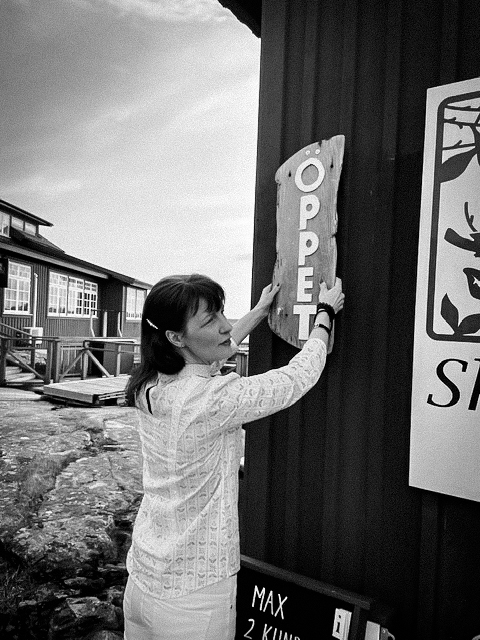
– It was Bo “Bobo” Eklöf (one of Stadium’s owners) who said: “Everyone has to make money, but nobody should make the last penny”. It’s a motto I’ve been carrying with me ever since – the idea that the whole production chain needs to be sustainable and that it’s not solely about corporate profit.
– To hear something like that from such an established company was refreshing. It gives me a sense of assurance in the things I do today.
“It was Bo ‘Bobo’ Eklöf (one of Stadium’s owners) who said: ‘Everyone has to make money, but nobody should make the last penny’. It’s a motto I’ve been carrying with me ever since.”
Self-assurance, or the lack of it, is a reoccurring issue among self-employed individuals. The safety nets are few, both socially and economically, which is something Anna Bilén, like many others, got to experience first-hand during the pandemic.
The toughest period was during the start of 2022, when the end of the pandemic seemed – at last – to be in sight.
– The timing couldn’t be worse, recounts Anna Bilén. During the winter I estimated things going well for the company and released a range of new products for the store and different exhibitions. Then, the last wave appeared and seemingly everyone around me got infected, including myself.
– So, there I was, alone, sick, and stuck with an enormous stock and low liquidity. When the restrictions lifted, the war in Ukraine broke out, which is a situation that impacts all of us. To buy bed clothes simply isn’t on the priority lists in those times.
”We shouldn’t be living in debt”
Anna Bilén decided to turn to social media and speak about her precarious financial situation. This is when all her efforts to work circularly and maintaining close relationships with clients and suppliers seemed to pay off.
– I wanted to be honest and not resort to some sort of “mid-season sale” just because things were going downhill. I was blunt: Times are tough for self-employed people, I wrote. I don’t have any liquidity and I need to sell some bed clothes to make it.
“The bank will call any minute”, I thought. You can’t do this as an entrepreneur, telling people you don’t have any money. They will close me down.
Again, arguably not the type of social media post you usually see in the fashion industry.
– Directly after posting it I felt this intense rush of anxiety, says Anna Bilén. “The bank will call any minute”, I thought. You can’t do this as an entrepreneur, telling people you don’t have any money. They will close me down.
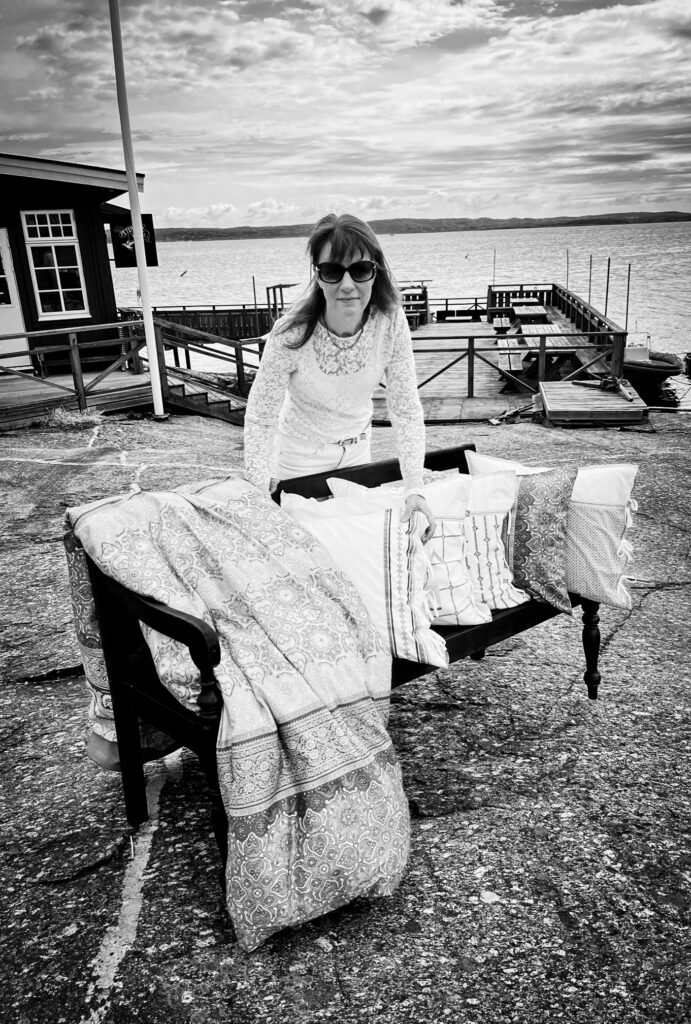
But the network rallied up. Suppliers eased their invoices and clients were eager to purchase new bedlinens as a way to show support. What’s more, the factory that produces the bed clothes devised a payment plan for Shyness’ debts.
She pulled through. Thanks to her network, Anna Bilén and Shyness endured the crisis.
– I was ecstatic, she says. The whole situation was the ultimate stress test for that which I have worked for during the past ten years. It proved that it was possible to direct a company in such a way – working with long-term goals, building relationships and to see oneself and others in the network as one circular unit.
Nevertheless, she believes that the pandemic has laid bare the shortcomings of today’s global economic system.
– It pointed at key questions for this industry’s future: Who will finance the circular system? What safety nets is in place when things turn bad? For me, it was important not to rely on bank loans in order to endure the storm. It’s simply not a sustainable solution, we shouldn’t be living in debt. The only thing I did was borrow some money from my network to show the bank that I had liquidity. I wanted to solve it all on my own.
Towards a circular future
Shyness rode out the storm. Today, Anna Bilén is in the position to look towards future opportunities and challenges while holding close to the many lessons learned during her journey with the company.
– You don’t know what the future will bring, says Anna Bilén. It’s about having a certain attitude to the future. It’s impossible to predict things, you can only try your best to be prepared to confront what life throws at you.
– Just like with the Rag Rugs: the ability to produce more of them leans on the possibility to recover worn out bed clothes from my customers. It could be soon, it could be in two years. In any way, I will be ready for it.
Shyness remains a small player in a big world. Currently, Shyness only has one additional employee beside Anna herself, and twelve consultants with whom she cooperates on a regular basis.
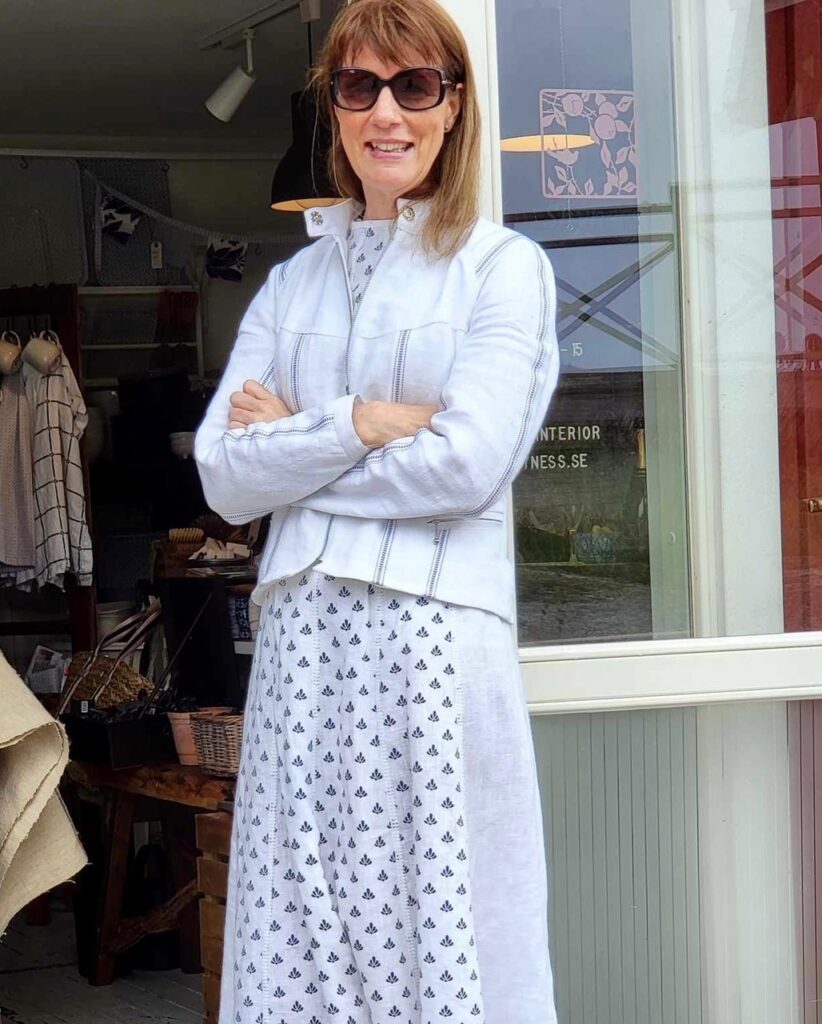
In the near future, Shyness will require a higher revenue to mitigate its financial vulnerability in challenging times. Anna Bilén, nevertheless, remains confident in her life and business journey following the circular model.
– The time is right, she says, and closes her computer in her small boathouse on Käringön.
Words: Christian Naumanen
Translation: Jean-Paul Bakkenist
Read more about the Rag Rug-project in our Digital Exposé.





